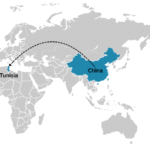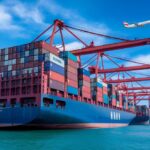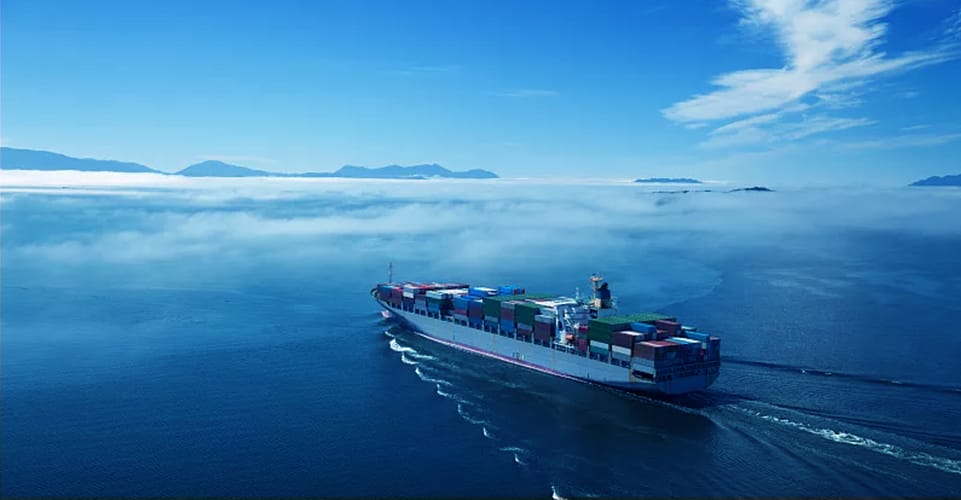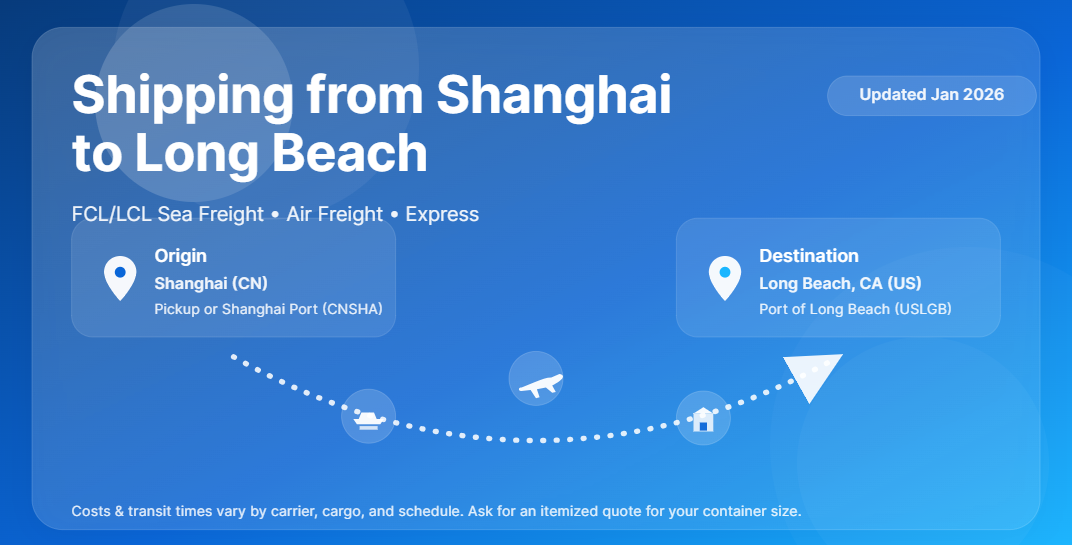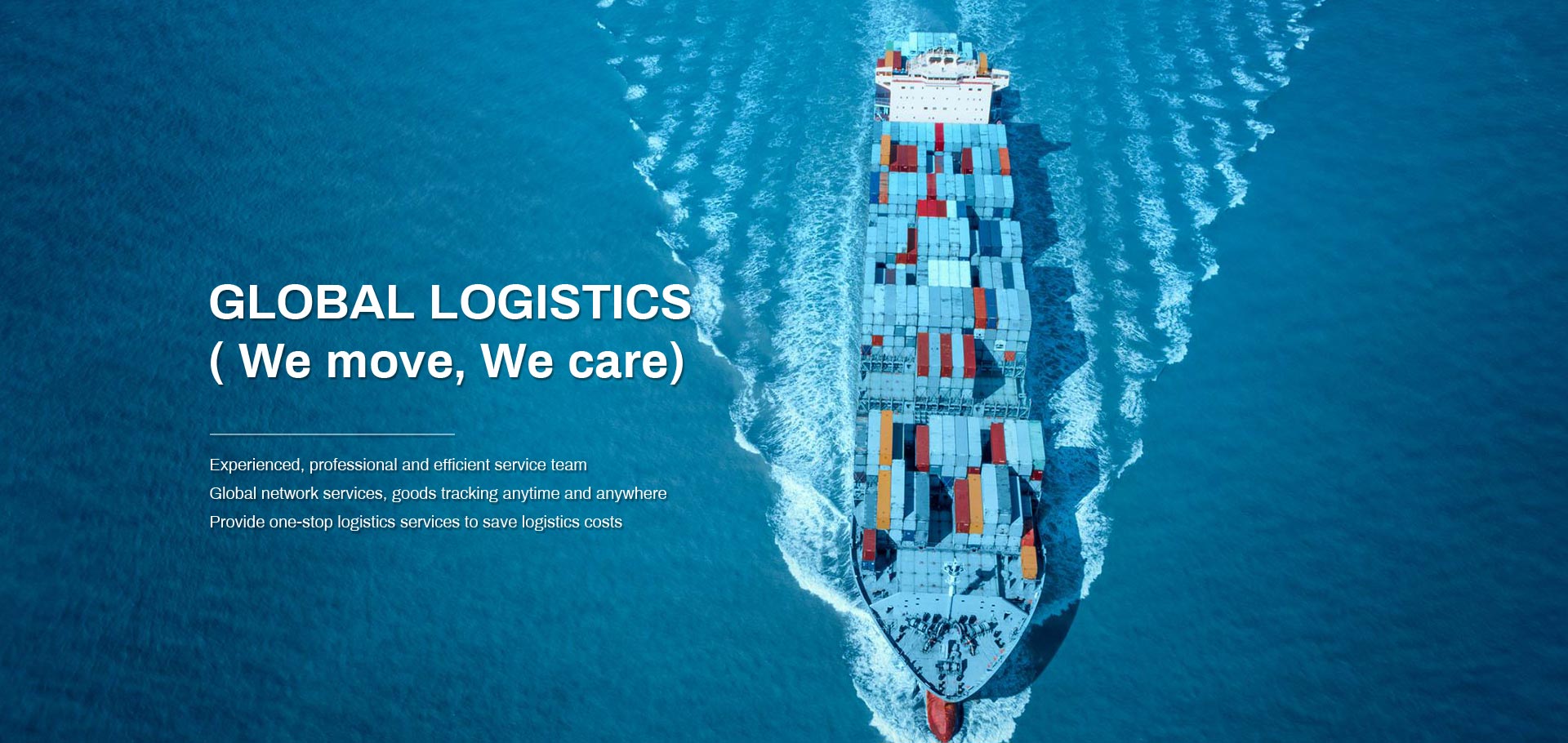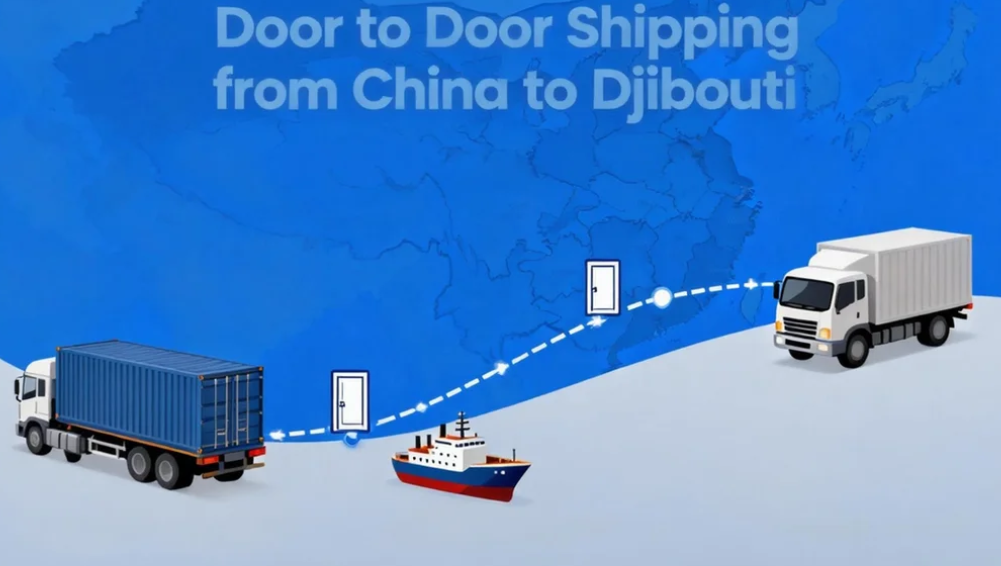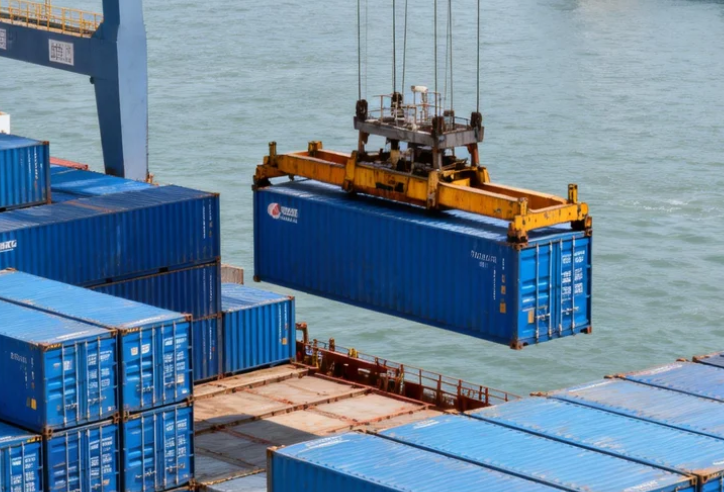Are you ready to navigate the complexities of shipping from Guangzhou to Tunisia? The process can often seem daunting, but understanding key routes, methods, and regulations can significantly ease your journey.
In this comprehensive guide, we will explore essential shipping channels, analyze costs, and provide insights into customs clearance in Tunisia. Whether you’re considering sea freight or air freight, this article will equip you with the knowledge to make informed decisions, ensuring a smooth shipping experience. Let’s dive in!
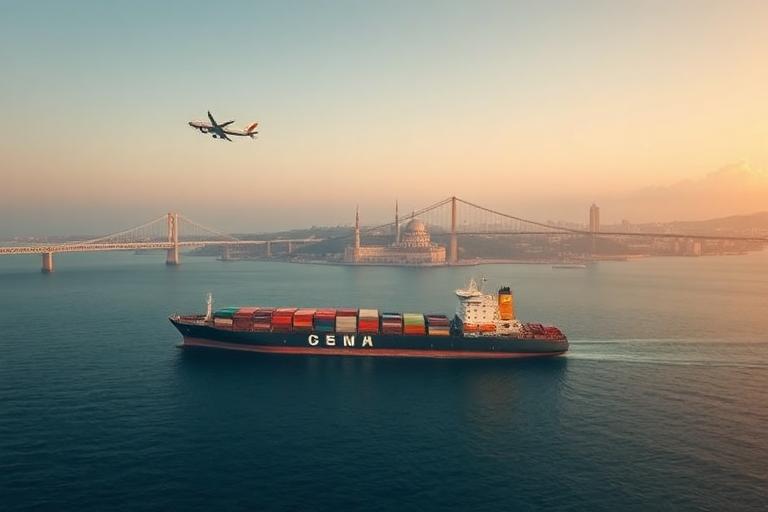
Key Routes Between Guangzhou and Tunisia
When considering shipping from Guangzhou to Tunisia, it’s essential to identify the key routes that facilitate this trade connection. The primary shipping routes are dictated by the major shipping ports in Tunisia and the optimal shipping channels that minimize costs while ensuring timely delivery.
Major Shipping Ports in Tunisia
Tunisia has several significant ports that serve as crucial hubs for international shipping. The most prominent ports for cargo shipping include:
| Port Name | Location | Port Type | Key Features |
|---|---|---|---|
| Port of Tunis | Tunis | Deep-water port | Main entry point for goods; handles container and bulk cargo. |
| Port of Sfax | Sfax | Commercial port | Second largest; specializes in agricultural and general cargo. |
| Port of La Goulette | Tunis | Multipurpose port | Serves passenger and cargo ships; close to the capital. |
| Port of Rades | Rades (near Tunis) | Container terminal | Key for imports/exports; efficient warehousing facilities. |
| Port of Bizerte | Bizerte | Fishing and commercial port | Handles limited cargo; mainly regional shipping. |
Understanding these ports’ capabilities will help you choose the most suitable destination for your imports, ensuring smooth operations and timely deliveries.
Optimal Shipping Channels for Cost Efficiency
Choosing the right shipping channels is crucial for cost-effective logistics. The shipping routes from Guangzhou to Tunisia are typically influenced by various factors, including freight costs, transit times, and shipping methods.
Direct Shipping Routes: The most cost-efficient option is often a direct shipping route via Sea Freight, where large containers are shipped directly from Guangzhou to the Port of Tunis or other major ports in Tunisia. This method, generally preferred for bulk shipments, minimizes handling and transit times.
Transshipment Routes: For smaller shipments or less urgency, transshipment routes through ports like Dubai or Singapore may be suitable. This method usually incurs additional costs due to extra handling and transfer fees but can be beneficial for small and varied cargo.
Air Freight: If time is of the essence, Air Freight can be significantly faster, shipping directly from Guangzhou to Tunis or through connecting flights. This option is ideal for high-value or time-sensitive goods but comes with higher freight costs.
By carefully analyzing the shipping routes and selecting the most appropriate channels, importers can optimize their logistics strategy to ensure cost efficiency and timely delivery.
Shipping Methods from Guangzhou to Tunisia
When shipping goods from Guangzhou to Tunisia, there are primarily two methods to consider: Sea Freight and Air Freight. Each method has its unique advantages and is suitable for different types of cargo and timelines.
Sea Freight from Guangzhou to Tunisia
Sea Freight is the most economical choice for transporting large volumes of goods. Freight forwarders like Dantful International Logistics offer services that streamline the process, ensuring that your cargo is handled professionally.
Benefits of Sea Freight:
- Cost-effective for large shipments.
- Ideal for bulk cargo, such as machinery, raw materials, and large consumer goods.
- Stable pricing compared to air freight rates, which fluctuate based on demand.
Transit Time:
- Average transit time from Guangzhou to the Port of Tunis via sea freight is approximately 25-35 days, depending on the shipping line and route.
Air Freight from Guangzhou to Tunisia
Air Freight is the preferred method for time-sensitive shipments, offering the fastest transit times compared to sea freight.
Benefits of Air Freight:
- Rapid delivery times, typically 3-7 days.
- Suitable for small, high-value items such as electronics, perishables, and urgent documents.
- Less risk of damage or theft due to quicker transit and handling.
Costs:
While air freight is significantly more expensive than sea freight, it provides critical advantages for urgent shipments. It’s advisable to obtain quotes from multiple freight forwarders to ensure competitive pricing, similar to those found on Dantful’s services.
By selecting the appropriate shipping method based on your specific needs, you can optimize your logistics operations from Guangzhou to Tunisia, ensuring a successful import process.
Read More:
- Shipping From China To Netherlands
- Shipping From China To Spain
- Shipping From China To Germany
- Shipping From China To France
- Shipping From China to Italy
- Shipping From China To Poland
- Shipping From China to United Kingdom
Shipping Costs from Guangzhou to Tunisia
2025 Sea Freight Cost Analysis (FCL/LCL)
When planning to import goods from Guangzhou to Tunisia, understanding the shipping costs is crucial for budgeting. The costs associated with sea freight can vary significantly based on whether you choose Full Container Load (FCL) or Less than Container Load (LCL) options.
FCL: Typically, the cost for shipping a 20-foot container from Guangzhou to the port of Tunis ranges from $1,200 to $1,800, depending on various factors such as the shipping line and seasonality.
LCL: For LCL shipments, costs can range from $50 to $120 per cubic meter. This option is more economical for smaller shipments but may take longer due to consolidation processes. You can learn more about consolidated freight shipping for better cost management.
| Shipping Method | Approximate Cost (USD) | Typical Volume |
|---|---|---|
| FCL (20ft Container) | $1,200 – $1,800 | 28.3 cubic meters |
| LCL | $50 – $120 per cubic meter | Less than 28.3 cubic meters |
Air Freight Cost Breakdown for Importing Goods
Air freight from Guangzhou to Tunisia is generally faster but also more expensive than sea freight. The cost typically ranges from $5 to $10 per kilogram, depending on the weight, volume, and service speed.
For example:
- A shipment weighing 100 kg could cost between $500 to $1,000.
- For urgent shipments, express services may incur additional fees, potentially increasing overall costs by 20% to 30%.
| Weight | Cost per KG (USD) | Total Cost (USD) |
|---|---|---|
| 0 – 100 kg | $5 – $10 | $500 – $1,000 |
| 100 kg and above | Variable | $1,000 and above |
Hidden Fees and Additional Charges
When shipping from Guangzhou to Tunisia, it is important to be aware of potential hidden fees and charges that may arise. Common additional costs include:
- Documentation Fees: Charges for preparing and processing shipping documents.
- Customs Duties: Taxes imposed on goods imported into Tunisia.
- Terminal Handling Charges: Fees for loading and unloading cargo at ports.
- Insurance: Optional but recommended to protect your goods during transit. Learn more about our Insurance Services.
Understanding these potential fees can help you avoid unexpected costs and ensure a smoother shipping experience.
How to Reduce Tariffs with Freight Forwarder Assistance
Working with a reputable freight forwarder like Dantful International Logistics can significantly help in reducing tariffs and managing costs. Here are a few ways we assist:
- Tariff Classification: Accurate classification of your goods to ensure you pay the correct duty rates.
- Documentation Support: Ensuring all necessary paperwork is in order to avoid penalties and delays.
- Consolidation Services: Reducing costs through LCL shipping by consolidating shipments from multiple clients.
- Negotiated Rates: Leveraging our relationships with carriers to secure the best possible rates.
Shipping Times from Guangzhou to Tunisia
Average Transit Times for Sea Freight
The average transit time for sea freight from Guangzhou to the port of Tunis typically ranges from 25 to 35 days. This duration can fluctuate based on factors such as the shipping line, port congestion, and weather conditions.
Average Transit Times for Air Freight
On the other hand, air freight is substantially faster, with average transit times of 5 to 7 days. This option is ideal for time-sensitive shipments, allowing for quicker delivery. However, the increased costs associated with air freight should be weighed against the urgency of your shipment.
Factors Affecting Shipping Durations
Several factors can impact the shipping durations for both sea and air freight, including:
- Weather Conditions: Adverse weather can delay shipping schedules, particularly for sea freight.
- Port Congestion: Busy ports can significantly add to waiting times, especially during peak seasons.
- Regulatory Delays: Customs clearance processes can cause delays if documentation is incomplete or inaccurate.
- Carrier Schedules: The frequency and reliability of the chosen shipping line or airline can also influence transit times.
By partnering with Dantful International Logistics, you can ensure that you are well-informed about these aspects, helping you make the best decisions for your shipping needs. We provide comprehensive services that streamline the entire process, ensuring your goods arrive safely and on time.
Import Regulations and Customs Clearance in Tunisia
Necessary Documentation for Smooth Customs Clearance
When shipping from Guangzhou to Tunisia, ensuring a seamless customs clearance process is critical for avoiding delays and additional costs. The necessary documentation typically includes:
Commercial Invoice: This document outlines the transaction’s details including the buyer, seller, description of goods, quantity, and price. It is essential for determining duties and taxes.
Packing List: This provides detailed information about the contents of the shipment, including dimensions, weight, and packaging type. Customs officials use this to verify the cargo.
Bill of Lading (BOL): Whether you are using sea freight or air freight, this legal document between the shipper and carrier serves as a receipt of freight services and contains the terms of transport.
Certificate of Origin: Required for certain products, this document certifies the country where the goods are manufactured. It can influence tariff rates.
Import License: Depending on the type of goods imported, an import license may be required by Tunisian authorities.
Customs Declaration: This must be filled out accurately and submitted to customs officials upon arrival of the goods in Tunisia. It provides details about the shipment and is essential for calculating applicable duties.
Ensuring all these documents are correctly completed and submitted can significantly ease the customs clearance process.
Common Challenges and Solutions When Importing
Importing goods into Tunisia from Guangzhou can present several challenges, such as:
Regulatory compliance: Keeping track of the constantly evolving import regulations can be daunting. Utilizing the expertise of a reliable freight forwarder like Dantful International Logistics can help navigate these complexities.
Language barriers: Communication issues may arise when dealing with local customs officials. Hiring a freight forwarder with local expertise can bridge this gap.
Customs delays: Delays in clearance can occur if documentation is incomplete or incorrect. To mitigate this, ensure that all required documents are prepared in advance and verified by your freight forwarder.
High tariffs: Tunisia has specific tariffs that can be burdensome. Engaging with a freight forwarder can also aid in identifying ways to reduce tariffs through proper classification and documentation.
By being prepared and leveraging professional services, importers can enhance their chances of a smooth shipping experience.
Choosing a Reliable Freight Forwarder for Your Shipment
Key Qualities to Look for in a Freight Forwarder
Selecting the right freight forwarder is essential for successful logistics operations. Here are some qualities to look for:
Experience: A well-established freight forwarder with experience in shipping from Guangzhou to Tunisia will have a better understanding of local regulations and logistics.
Network: A good freight forwarder should have a robust global network that includes partnerships with carriers and customs brokers to facilitate smooth transportation.
Transparency: Look for a provider that offers clear communication regarding costs and services. This helps in avoiding hidden fees and ensures you can budget accurately.
Customer Service: Reliable customer support is essential, especially for resolving issues that may arise during transit.
Expertise in Customs Clearance: A proficient freight forwarder should be knowledgeable about the customs regulations in Tunisia to aid in shoring up compliance.
Questions to Ask Before You Hire a Shipping Agent
Before committing to a freight forwarder, consider asking the following questions:
- What is your experience with shipping to Tunisia?
- Can you provide references or testimonials from past clients?
- What services do you offer in addition to transportation?
- How do you handle customs clearance and documentation?
- What are your policies on insurance and liability?
- Are there any hidden fees or extra charges I should be aware of?
- How will you keep me updated on my shipment’s status?
By addressing these questions, you can ensure that you choose a freight forwarder that aligns with your shipping needs and provides peace of mind.
Best Practices for Packaging and Labeling Goods
Importance of Proper Packaging for International Shipping
Effective packaging plays a crucial role in international shipping. Proper packaging protects goods from damage during transit and ensures compliance with shipping regulations. Here are key reasons why proper packaging is essential:
Protection: High-quality materials safeguard cargo against physical damage and environmental factors such as moisture and temperature fluctuations.
Cost Efficiency: Well-packaged items may reduce shipping costs due to more efficient space utilization and lower risk of damage.
Compliance: Adhering to packaging regulations set by customs authorities can prevent delays and additional charges.
Labeling Requirements for Goods Shipped to Tunisia
Correct labeling is vital for a smooth customs process. Labels must include:
Product Description: Clearly state what the item is to assist customs officials in classification.
Country of Origin: This detail is essential for tariff assessment.
Handling Instructions: Indicate if the cargo is fragile or requires special handling.
Contact Information: Include the shipper’s and recipient’s contact details for swift communication.
In summary, adhering to best practices in packaging and labeling helps facilitate efficient shipping from Guangzhou to Tunisia, ultimately leading to a hassle-free customs clearance experience. For comprehensive logistics solutions, Dantful International Logistics is your trusted partner in navigating international shipping challenges.

Young Chiu is a seasoned logistics expert with over 15 years of experience in international freight forwarding and supply chain management. As CEO of Dantful International Logistics, Young is dedicated to providing valuable insights and practical advice to businesses navigating the complexities of global shipping.

